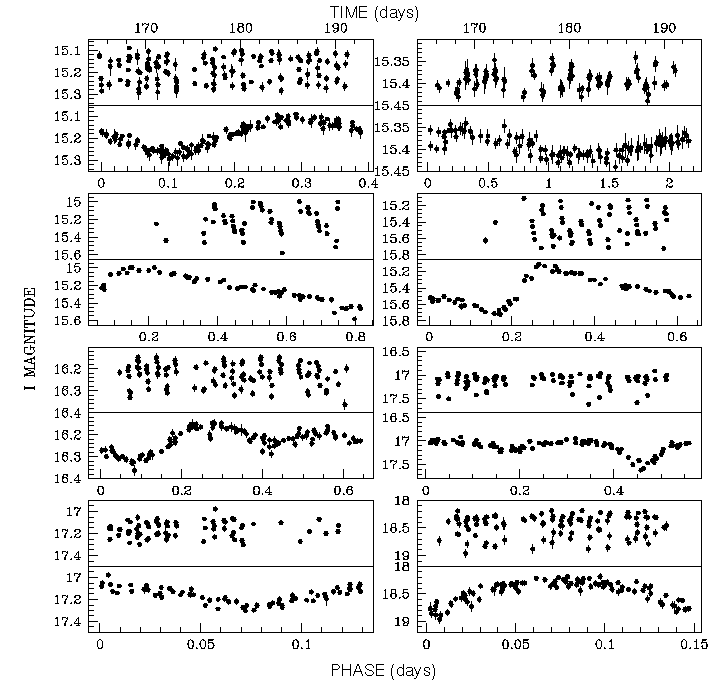Variable stars found by PLANET
The investigation of variable stars by PLANET
The 5 arcminute by 5 arcminute fields monitored by
PLANET contain about 10,000 stars each. Among these
stars, about a percent are variables. Since PLANET samples each
field many times over the course of one season, accurate light curves
can be built for these variables. Just 8 of these variables are shown
in the figure below. Each of these variable stars found by
PLANET changes its brightness in a periodic, rhythmic way over a
period of a few hours to many days.
Two plots are shown for each variable:
The top plot shows the brightness as a function of time
over a period of about a month.
The bottom plot shows just one cycle in the brightness cycle
of each star. Look at the scale just below the bottom plot of each
pair to see how long this cycle lasts (in days).
The brightness of each star is measured in ``magnitudes'' through
a very red filter called an I-band filter. If the magnitude of a
star decreases by 1 magnitude, it means that the star has
gotton about 2.5 times brighter.
Notice that some of the variable stars detected by PLANET are quite
faint (I=19), others vary quite quickly (2-4 hours), while others
vary by only a small amount (less than 0.1 magnitude or 10%).

Many of these stars vary in brightness because they are pulsating;
their gaseous atmospheres swell and shrink in size in a rhythmic way.
Others --- like the ones with the double dips in their brightness cycles ---
vary because they are actually two stars orbiting one another
(a binary star system).
In binary systems, the light from each star can be temporarily
blocked as the other passes in front of it.
The dips are of different sizes because the stars themselves can be
of different sizes, brightness and temperatures.
As a by-product of the studies of the microlensing events,
variable star catalogs and studies will be made in the near future.
back to the PLANET Homepage

